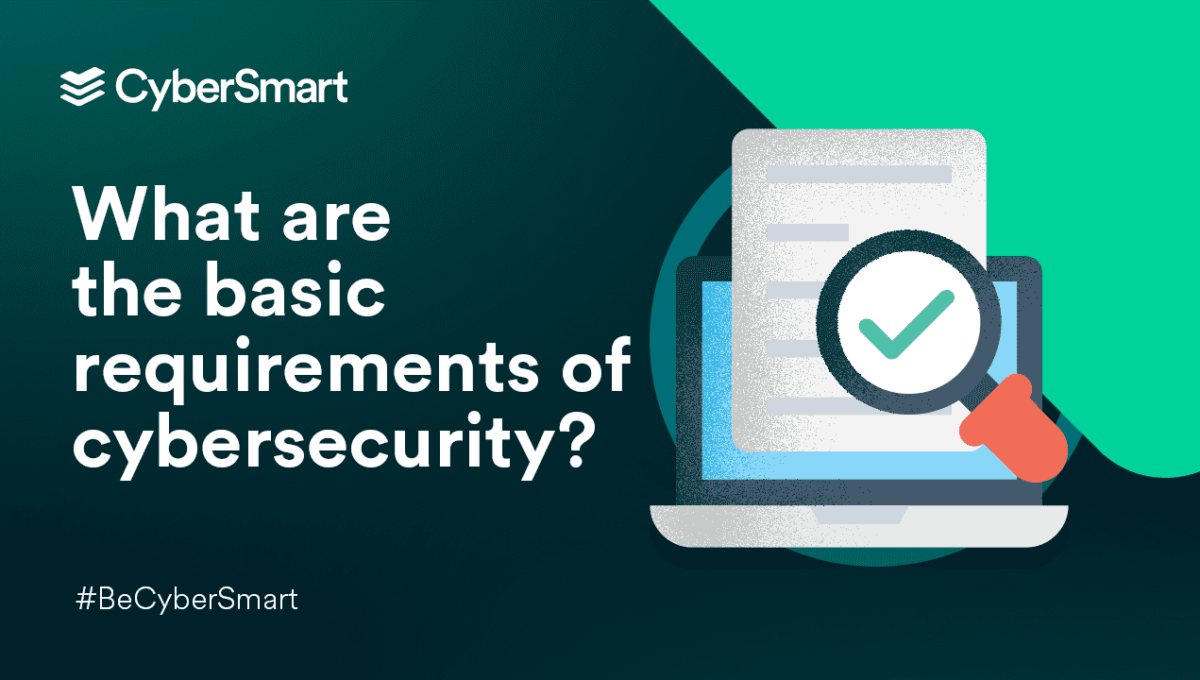Ideally, no business only does the bare minimum for their cybersecurity. But it’s understandable that many small or medium businesses are limited by their budget. If this is the case for yours, you need basic cybersecurity measures that are effective yet affordable.
Here’s how you can ensure your business is protected and secure, without breaking the bank.
5 basic cybersecurity measures for businesses
Cybersecurity mustn’t slip under the radar for small businesses. 43% of all data breaches involve small businesses, with 60% of these businesses filing for bankruptcy within six months of an attack.
Luckily, the cybersecurity landscape is full of many great solutions to secure your business, ranging in complexity and price depending on the levels of protection you need. And it can be helpful to go back to basics in tough economic times.
You can do this without sacrificing security by following the control areas of Cyber Essentials. We’ve outlined them, and what they mean for small businesses, in this blog.
Here are some examples of the basic cybersecurity measures that any small business can take to maintain a good level of protection against cyber threats:
1. Make your business internet connection secure
There’s always a risk to your business network and equipment when you have a broadband connection. Think about it – it’s always on – so there’s always a window of opportunity.
Luckily there’s no need to fret. Instead, ensure that you’re using a business broadband package. They’re more comprehensive compared to a home broadband package and include proactive security measures.
For example, many business broadband options are equipped with higher-grade security software. You should look for features such as a VPN, firewall, and the ability to filter content. With this functionality, you don’t need to spend more on additional solutions because your key security features are built in.
Need help finding the right cybersecurity accreditation for your business? Check out our guide.
2. Switch on secure settings for business devices
Business equipment and software often come with the manufacturer’s default settings. This is useful to set things up quickly. But did you know that it’s easy to ‘upgrade’ your devices to a more secure setting?
Secure settings provide a greater level of protection against security vulnerabilities. Simply check the settings of your business equipment and take a critical look at its features and services. For more explicit advice, the National Cyber Security Centre provides free, trusted security guidance for businesses across a wide range of platforms.
You can also implement measures like multi-factor authentication across devices as an additional level of security. Or set up a locking mechanism across devices that require either biometric, password or PIN access.
3. Manage data access in your business
Check that only the right people have access to the data they need in your business.
For example, only certain team members might need to access sensitive data, so they are the only ones that need permission.
A ‘least privilege’ policy is the best method of managing data access in your business. It only allows users to have the minimum level of access or permissions needed to perform their jobs. This creates a safer environment for your data and reduces the risk of harmful, or accidental, actions.
4. Protect against malware and viruses
Antivirus software is a basic cybersecurity measure for all businesses. It’s a type of software product that detects, quarantines, and blocks malware from running on your business devices. These are malicious programs that can impact your data, alter, or hijack functions, or monitor end-user activity.
If your budget is tight, you don’t necessarily have to spend a lot of money on antivirus software. There are free and built-in anti-virus solutions for most popular business platforms. If you’re looking for something a little more robust, read our blog that highlights our top 10 antivirus products.
5. Keep software and devices up to date
Manufacturers release regular updates for software and equipment like new features or bug fixes.
The programs, software, devices, systems, and tools you use every day will require updating every now and then. And if you’re using an old version of them that isn’t up-to-date, it leaves your business open to vulnerabilities. Ironically, even outdated antivirus software could be exploited by bad actors.
Regularly patching your software and devices avoids these problems. Making sure every tool in your business is running the latest version helps you create a safer working environment.
Always cover the basic cybersecurity principles
Implementing these basic cybersecurity measures is a simple, straightforward, and affordable method of keeping your business secure.
And for small or medium businesses looking for extra security qualifications, these steps are part and parcel of qualifying for a Cyber Essentials certification – a government-backed qualification that proves to customers and partners that your business protects itself from cyberattacks.
Still unsure about what the ‘must haves’ are when it comes to your business’s cybersecurity? Then check out our guide to cybersecurity on a budget.

